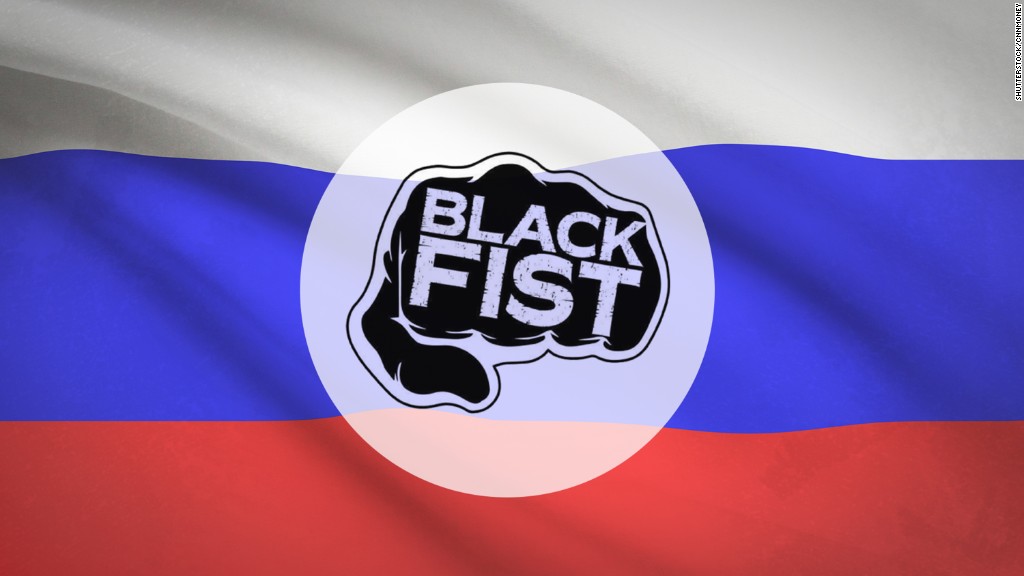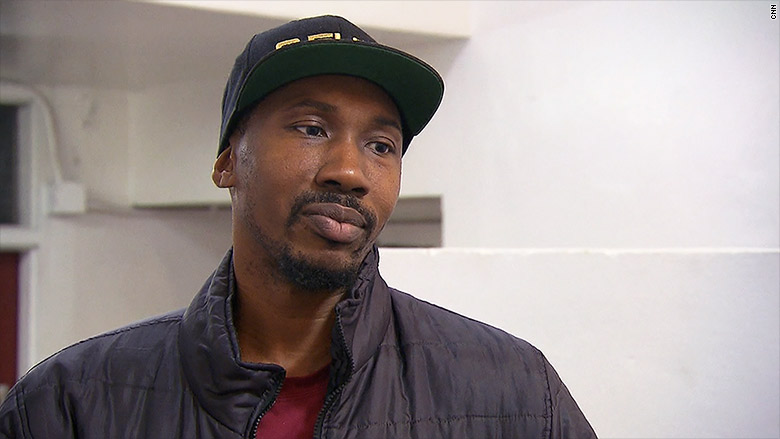
A group linked to the Russian troll farm behind thousands of fake Facebook ads paid personal trainers in New York, Florida, and other parts of the United States to run self-defense classes for African Americans in an apparent attempt to stoke fear and gather contact details of Americans potentially susceptible to their propaganda.
"Be ready to protect your rights... Let them know that black power matters," the group, known as Black Fist, wrote on its website promoting the events.
The group appears to have been set up in January 2017, and it ran events before stopping at some point this year, evidence that Russia's attempts to use social media to meddle in American affairs have extended far beyond the 2016 presidential election.
The events, which appear to have been designed to suggest a connection to the Black Lives Matter movement, were -- unbeknownst to the trainers who led them -- likely conceived by the Russian government-linked Internet Research Agency.
Related: Exclusive: Even Pokémon Go used by extensive Russian-linked meddling effort
The site lists Facebook and Instagram pages that CNN is told were removed as part of Facebook's investigation into Russian meddling in U.S. politics, a source familiar told CNN.
The mysterious effort matches other previously discovered Russia-connected efforts to engage in U.S. social issues, including promoting rallies for a fake secessionist group in Texas and protests and demonstrations that were, like Black Fist, supposed to seem connected to Black Lives Matter.
Black Fist reached out to Omowale Adewale, a martial arts instructor Brooklyn, in January 2017.
Adewale said he ran more than a dozen events for Black Fist between January and May, never suspecting that the Russian group was behind them.

The group first contacted him on Instagram, he said, and he eventually spoke by phone to a man who introduced himself as "Taylor."
Over the course of five months, Adewale would speak to "Taylor" numerous times by phone. Adewale said the man asked him to collect the names and contact details of people attending the events. Adewale said he doesn't believe he handed over anyone's contact details.
Adewale said "Taylor" asked for photos and videos from the events, he assumed to prove they were taking place. Adewale provided the material and the group used it on its Facebook and Instagram pages for further promotion, he said.
Adewale received calls from the group from a U.S. phone number. The number, however, is registered to an internet phone service provider and could be used from outside the U.S. Multiple calls to the number went unanswered on Tuesday.
Adewale said he thought the man's accent sounded "continental African," but he assumed it was someone who had moved from Africa to the US.
Adewale said that although Taylor did not seem particularly well-versed in American politics, or the Black Lives Matter movement, he wasn't too suspicious about the group.
"Every time I kind of raised an eyebrow they immediately had something else," he said. They paid him on time. They continued to promote his events.
Adewale still has some voicemails from "Taylor," and provided them to CNN.
Adewale promoted the event using his own Instagram page. Black Fist also promoted the events on Facebook, Instagram, Eventbrite and MeetUp.
Eventbrite removed the events from its platform after CNN contacted the company on Tuesday. "Fraudulent or illegal activity has no place on Eventbrite. We remain vigilant and will continue to remove any bad actor engaged in this behavior," the company said in a statement.
The company said it has not been contacted by the FBI or Congressional investigators.
The group's MeetUp event page is no longer live.
"Meetup aggressively monitors for suspicious behavior.... We also use third party technology services that specialize in identifying suspicious account creation and behavior, including rules that focus specifically on Russian IP addresses and activity," Meetup's communications director, Kristin Hodgson, told CNN.
"In this instance specifically, there was a Meetup group called Black Fist Self Defense Project created in February 2017 and closed six months later. The account was created with a Russian IP address, which was noted and reviewed several times. The group itself did not appear to be in violation of our community guidelines, so was approved and allowed to remain on the platform. Based on our comprehensive monitoring, and the nature of our business, Russian interference in political matters is not a problem on Meetup."
Adewale said he was paid $320 a month by the group, first through Google Wallet and later by PayPal, until the group abruptly stopped all contact in May.
That wasn't the only way that Black Fist appears to have used PayPal. It also used the name of a real woman from North Carolina on a PayPal page linked from the "Donate" section of its web site. The woman, who asked that her name be withheld, had never heard of the Black Fist site before being contacted by CNN and said she was shocked and frightened to see her name associated with it.
"I had nothing to do with this," she said.
Asked for comment, a PayPal spokesperson told CNN, "PayPal works to combat and prevent the illicit use of our services and to protect our customers. We devote significant resources to these efforts and work closely with law enforcement officials to identify, investigate and stop improper or potentially illegal activity."
Google Wallet did not respond to CNN's request for comment. However, a researcher at Google in New York did reach out to Adewale on Tuesday after his story was first reported by RBC.
Related: Exclusive: Fake black activist accounts linked to Russian government
Chuck Jetton Jefferson says he also ran courses for the group in Tampa, Florida.
Like Adewale, Jefferson said the group first contacted him on social media before following up with calls.
"They reached out to me and explained the program. The organization was dedicated to teaching self-defense in low income communities," he told CNN, adding that he thought it sounded like a "great idea."
CNN played the voicemails left on Adewale's phone for Jefferson, and Jefferson said he believed it was the same person who spoke to him.
Jefferson said he was paid $100 per class over the course of four months, and that normally 8-12 people attended.
"They wanted reports of how many people showed up and videos of the classes. I would send them updates," he said.
Jefferson said he had viewed the group as an authentic charity even though some of these interactions seemed strange.
"When you have somebody that is going to pay you to do something you love, it's hard to see it like a negative thing, but... it was weird," he said.
The Black Fist page also lists trainers and events in California and Michigan. CNN has reached out to the trainers listed.
Black Fist is one of a series of campaigns run from Russia designed to look like part of the American Black Lives Matter movement. CNN first reported last month on Blacktivist, a campaign whose Facebook page had more than 300,000 followers on Facebook.
Black Fist's use of Eventbrite and MeetUp adds the two companies to a growing list of organizations utilized by Russian trolls in their attempt to sow discord in the U.S. Facebook, Twitter, YouTube, Tumblr, and even Pokemon Go were also employed in various ways.


